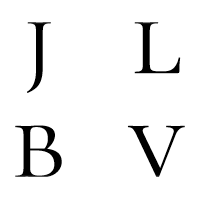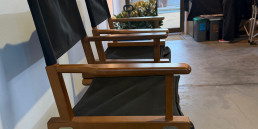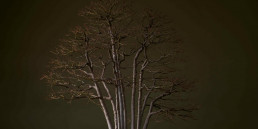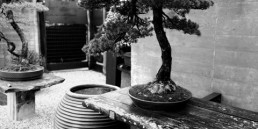Como todos los años, el roble está lleno de agallas. Parecen pequeños frutos.
Cada vez que paso cerca pienso en la expresión “tener agallas”; que podría querer decir que las plantas son valientes por la capacidad que tienen para defenderse. Porque las agallas son eso, una defensa ante el ataque de algún insecto, signo del mecanismo de defensa de la planta…está bien que tengan agallas. Descubro que existe una ciencia que lo estudia; la cecidología, una colección de seis mil muestras en el Museo de Ciencias Naturales y que se puede saber que insecto la ha provocado en función de la forma que tenga.
Pero si algo llama la atención es la perfección absoluta de la Naturaleza porque la planta al defenderse del ataque forma una estructura para aislar la amenaza que a su vez sirve al intruso de cobijo y alimento hasta completar su desarrollo.
La decepción vino después cuando supe que la expresión viene del parecido de las agallas de los robles con los testículos, símbolo de valentía y coraje…así que en realidad la expresión es parecida a “tener pelotas”…todo menos poético…
Like every year, the oak tree is full of galls. They look like small fruits.
There is an expression in Spanish «it take galls», similar to «It take guts». Every time I pass by the tree I think of the expression; which could mean that plants are brave because of their ability to defend themselves. Because that’s what galls are, a defence against an insect attack, a sign of the plant’s defence mechanism… it’s good that they have galls. I discovered that there is a science that studies it; cecidology, a collection of six thousand samples in the Museum of Natural Sciences, and that you can tell which insect has caused it by the shape it has.
But if anything is striking, it is the absolute perfection of Nature, because the plant, when defending itself from the attack, forms a structure to isolate the threat, which in turn serves the intruder as shelter and food until it completes its development.
The disappointment came later when I found out that the expression comes from the resemblance of the gills of the oaks with the testicles, symbol of bravery and courage… so in reality the expression is similar to ‘having balls’… anything but poetic…






